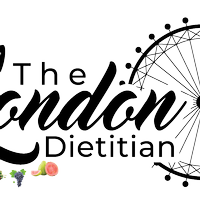Polycystic ovarian syndrome (PCOS) is NOT just a reproductive disorder. In fact, it is the most common hormonal disorder in women which presents in women as a group of symptoms and can present in a variety of manners. These symptoms are often underpinned by insulin resistance, inflammation and high levels of male hormones known as androgens.
In order for a woman to be diagnosed with PCOS, most clinicians follow the criteria set out via the Rotterdam criteria which is when a woman needs to meet two of the three criteria from the below:
1. An ultrasound which shows ovaries with multiple follicles. Each practice will vary on how many follicles they need to spot in order for a diagnosis of PCOS to be made, but in general, if a total of 30 or more follicles are seen on ultrasound IN BOTH ovaries, this is an indication that you may have PCOS.
2. Problems with the menstrual cycle which can include irregular/absent periods, anovulation (not ovulating).
3. Blood tests showing high levels of androgens in the blood or symptoms that are reflective of high androgen levels.
PCOS 'types'. Is it a thing?
If you’re on instagram and following any PCOS related account, chances are you’ve heard of the PCOS ‘types’. These include inflammatory PCOS, adrenal PCOS, insulin resistant PCOS and post-pill PCOS. You are then normally given a bunch of rules on what you should and shouldn't be doing with each type. The classification of these ‘types’ is mostly based on the practice of functional medicine practitioners and is not considered to be evidence-based practice. However , in conventional medicine, there are a cluster of symptoms which tend to present together and so they are classified into the following types:
Type A- characterised by high levels of male-related hormones, irregular periods or no periods, and polycystic ovaries.
Type B - characterised by high levels of male-related hormones, irregular periods or no period
Type C- high levels of male-related hormones and polycystic ovaries.
Type D- Irregular/absent menstrual cycle and polycystic ovaries.
I tell my clients not to get bogged down with these types and trying to box yourself into one of them. Ultimately, depending on the your lifestyle, symptoms can and do change with time and according to any external influences you have in your life such as physical activity levels, diet, stress, illness, lack of sleep etc. And this can lead to changes in symptoms which is why it is not useful to bog yourself down with a certain ‘type'. Rather, I recommend that you focus on the symptoms you have and use the strategies you will read below to help target these symptoms. And this leads us to the following symptoms that many women with PCOS will complain of:
-Intense cravings -Menstrual cycle issues -Excess body hair (hirsutism) -Hair loss from head.
-Infertility/subfertility -Brain fog -Mood disorders -Skin tags
-Fatigue -Sleep problems -Boils -Acne
-Skin tags -Intense hunger -Difficulty losing weight
The good news is that all the above symptoms can be significantly improve through diet. With the correct, tailored nutritional regime and personalised supplements, a woman's life can be transformed by making small, but effective dietary changes that compound over time.
If you are struggling with any of the above symptoms and want to have more treatment option than 'just lose weight', or 'start the pill', then head over to my contact page and reques a FREE discovery call to find out more on how science-backed nutrition strategies can improve the management of your PCOS symptoms.

